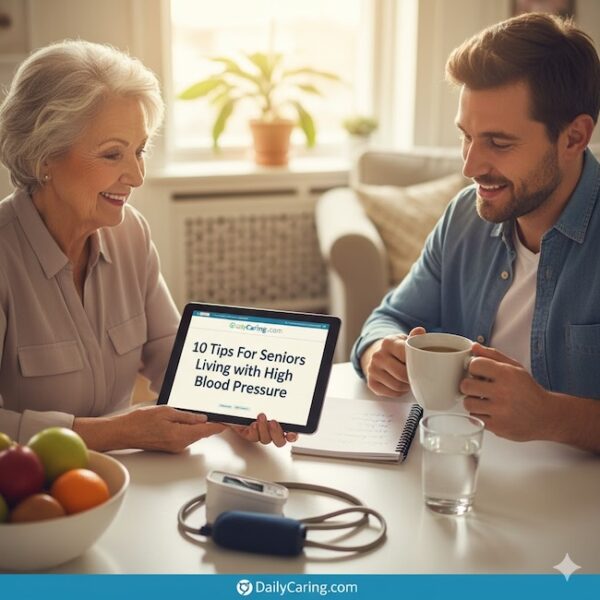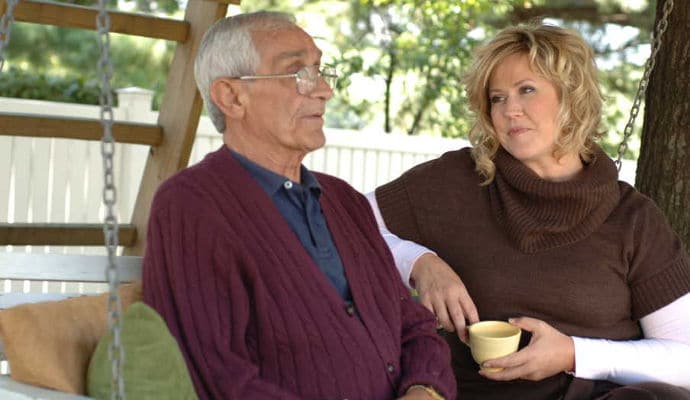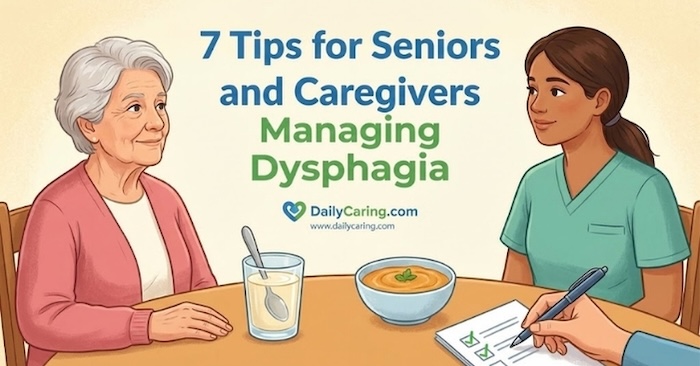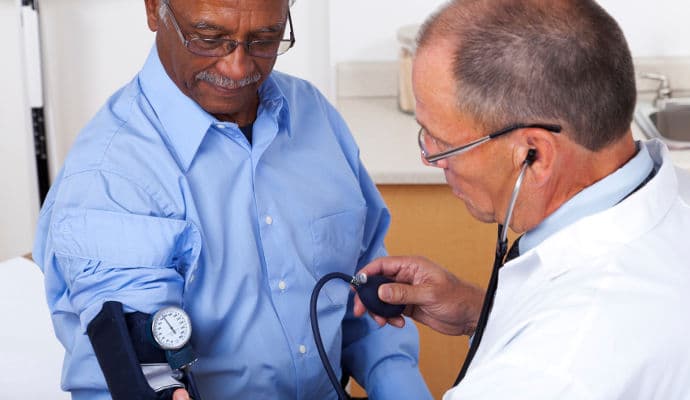High blood pressure is often called the “silent killer” for a reason – it can quietly strain the heart, damage blood vessels, and increase the risk of heart attack and stroke, all without any apparent symptoms.
For seniors, managing this condition is a cornerstone of preserving long-term health and independence. But a diagnosis of hypertension doesn't have to mean a life of deprivation and constant worry. In fact, some of the most potent ways to improve cardiovascular health are simple, sustainable lifestyle adjustments.

Here are 10 effective, practical strategies you can use to help your loved one take control of their blood pressure and protect their vitality for years to come.
Managing High Blood Pressure is Essential for the Health of Seniors
High blood pressure (also known as HBP or hypertension) is a serious condition that’s common among older adults.
In fact, nearly 120 million American adults have high blood pressure – 48% of the population. But only about 1 in 4 have their condition under control.
High blood pressure is often called the “silent killer” because it has no visible symptoms.
That’s a problem because it damages blood vessels and significantly increases the risk of severe (and sometimes fatal) health conditions.
There’s no quick cure, but high blood pressure can be well managed with lifestyle changes and prescription medication.
We explain why high blood pressure is so dangerous and share 10 lifestyle changes that lower blood pressure and improve your older adult’s health.
High Blood Pressure Can Cause Serious
Damage to One's Health
It’s important to manage or lower blood pressure because untreated high blood pressure significantly increases the risk of severe conditions like:
- Coronary artery disease
- Heart attack
- Heart failure
- Stroke
- Vascular dementia
- Kidney disease or failure
- Vision loss
- Angina
- Peripheral artery disease (PAD)
- Shortness of breath during light physical activity or exercise
VIDEO: Managing High Blood Pressure in Aging Adults
10 Ways to Help Seniors Living With High Blood Pressure to Improve Their Health
We’ve got 10 ways to help your older adult live a healthier lifestyle and lower or maintain their blood pressure.
Plus, if your older adult is already on blood pressure medication, a healthy lifestyle could also help their medication work more effectively.
They don’t have to make all these changes at once – that might be too big an adjustment.
Instead, ease them into it by choosing one or two of their top issues and gradually improving those.
After those changes become part of their routine, keep working through the rest of the list.
1. Regularly monitor blood pressure
Keeping track of your older adult’s blood pressure is key to reducing it. After all, it’s tough to improve something that you can’t measure.
Get a home blood pressure monitor to take daily or weekly measurements.
Keep a notebook to record the date and blood pressure measurement so you can track changes over time. It also shows when lifestyle changes are working.
Use the American Heart Association’s handy chart to see which category your older adult’s blood pressure is in – from normal through the four levels of high blood pressure.
2. Take medications as prescribed
If your older adult’s doctor has prescribed medication to control blood pressure, be sure they follow instructions – take pills on time, don’t skip doses, and don’t cut pills in half.
And get prescriptions refilled ahead of time so they won’t run out of medicine.
If anything is unclear or confusing, or if side effects occur, tell the doctor right away so they can find a solution.
3. Maintain a healthy weight
Those who are overweight could lower their blood pressure by losing just 10 pounds. That may even allow them to take less blood pressure medication.
4. Eat heart-healthy foods
Adjusting eating habits is an effective way to lower blood pressure.
Focus on whole foods, less fat, and more fruits and vegetables. The DASH diet is a helpful guide.
5. Use less salt (sodium)
Reducing salt intake also helps control high blood pressure. The American Heart Association recommends keeping daily sodium intake below 1500 mg.
VIDEO: 4 Websites that Feature Low Sodium Recipes for Seniors
6. Exercise regularly
Regular exercise helps lower blood pressure. Aim for moderate activity at least 2.5 hours a week.
Walking is an excellent activity that can be done indoors, outdoors, or in a shopping mall.
For more exercise ideas, try these simple home exercise routines. They’ve also got the extra benefit of reducing fall risk:
- 15 Minute Senior Exercise Program for Balance and Strength
- 10 Minute Easy and Effective Chair Exercises for Seniors
- 3 Easy Balance Exercises Prevent Falls in Seniors
7. Don't smoke
When someone smokes, the nicotine raises blood pressure and heart rate. Smoking also causes arteries to tighten, which increases blood pressure.
8. Drink less alcohol
Drinking alcohol increases blood pressure. If your older adult drinks, limit it to 2 drinks a day for men and one drink a day for women.
9. Manage stress
Blood pressure rises when someone is feeling stressed, so it’s best to keep stress levels low to reduce blood pressure.
Some people may benefit from meditation and relaxation exercises.
Others might relax with exercise or by immersing themselves in a hobby like art, gardening, or crossword puzzles.
10. Other healthy lifestyle habits
Leading a healthy lifestyle also helps lower blood pressure. That means getting enough sleep and drinking plenty of water.
Here are some helpful tips if your older adult has trouble with either:
- 6 Ideas to Get Seniors to Drink More Water
- 11 Tips to Improve Senior Sleep by Reducing Pain and Discomfort
- 3 Top Benefits of a Daily Routine for Seniors
Final Thoughts About High Blood Pressure in Aging Adults
Managing high blood pressure is a marathon, not a sprint, and every positive choice adds up to create meaningful, long-lasting health benefits. Your supportive role in helping your loved one implement these strategies is a profound investment in their well-being.
Remember, the goal is progress, not perfection. Celebrate the small victories – a walk around the block, an extra vegetable at dinner, a moment of managed stress. Your encouragement and partnership make all the difference.
By taking these steps together, you are not just managing a number; you are actively building a stronger, healthier future.
Recommended for you:
- 6 Easy At-Home Exercises: Improve Balance and Prevent Falls
- 3 Simple Exercises for Swollen Legs and Ankles in Seniors
- Prevent Dangerous Drug Interactions in Seniors with a Drug Interaction Checker
This article contains some affiliate links. We never link to products for the sole purpose of making a commission. For more information, see How We Make Money.
About the Author

Connie is the founder of DailyCaring.com and was a hands-on caregiver for her grandmother for 20 years. (Grandma made it to 101 years old!) She knows how challenging, overwhelming, and all-consuming caring for an older adult can be. She also understands the importance of support, especially in the form of practical solutions, valuable resources, and self-care tips.














Great advice for those with high blood pressure. Thank you for such an informative article!
So glad it’s helpful!